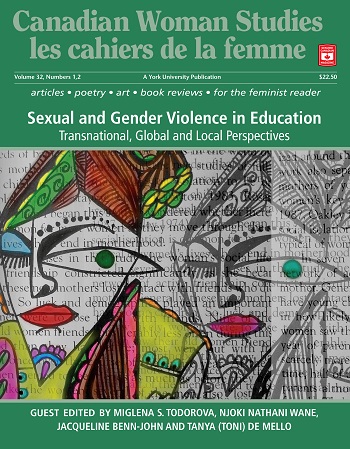Women’s Experiences of Stalking on Campus: Behaviour Changes and Access to University Resources
Abstract
The present study examined whether behavioural changes made by women students who experienced stalking on campus restricted their access to university resources and facilities. A diverse sample of two hundred and fifty-five university women with experiences of stalking, including racialized women, women with disabilities and members of sexual minorities, completed an online survey and asked if they had made changes to their behaviour on campus in order to feel safer or more secure and to describe those changes. Using phenomenological thematic analysis and a feminist theory framework of understanding stalking behaviour, themes and subthemes relevant to the research questions were generated. Thematic analysis of participant’s responses yielded five themes based on changes in behaviours or attitudes identified by students: restrictions in campus movements, increased vigilance, changes in social engagement, changes in academic engagement, and use of health/support services. Women self-identifying with a disability were more likely to report changing their behaviour on campus to feel safer and more comfortable following stalking victimization compared to individuals without disabilities.


